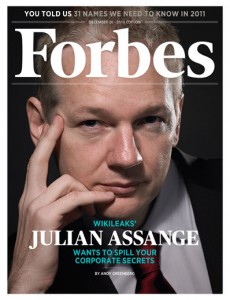Edit of 18 May to add links, images, and comment for the war college students.
This is a first-class book and everything that it offers is laudable. Unfortunately, it completely isolates the civilian political to military professional relationship from ethics, intelligence, or the public.
This is not to suggest that leadership cannot take place in the absence of intelligence–indeed, Churchill was at his greatest when he formed his private informal intelligence network to replace the static and myopic official intelligence channels that muddled along in the pre-war years.
However, to discuss Viet-Nam, for example, and not acknowledge what George Allen has documented so well in None So Blind: A Personal Account of the Intelligence Failure in Vietnam, or Michael Hiam in Who the Hell Are We Fighting?: The Story of Sam Adams and the Vietnam Intelligence Wars, to wit, the consistent manner in which policy-makers in Washington refused to listen to accurate intelligence estimates, while their Generals and Ambassadors in Saigon steadfastly “cooked the books,” leaves the reader with a distorted understanding of how the policy-military-intelligence triad actually fails, more often than not, on the policy side rather than on the intelligence side. The manipulation of truth from the Saigon end, and the refusal to listen to truth on the Washington end, resulted in the deaths of hundreds of thousands of people, Vietnamese, Laotian, Cambodian, and American, as well as allied nationalities.
Ethics–and intelligence–matter, and no treatment of Supreme Command should fail to address how these two should be but often are not the foundation for the civilian-military relationship. Let me be blunt: until complete transparency is achieved in how we plan, program, and budget for national security, the military officer corps, not the elected politicians or the secret bureaucrats, are going to be the truth-tellers.
Eight other books (all with my Cliff Note reviews) that I recommend as context:
Modern Strategy: Time is the one strategic variable that cannot be bought nor replaced.
Hope Is Not a Strategy: The 6 Keys to Winning the Complex Sale Neither is ideological fantasy and flag officers that forget their Oath and confuse loyalty with integrity.
Security Studies for the 21st Century Policy makers are seriously stupid about reality, and all too prone to believe classified crap or make up their own (see next two books)
Secrets: A Memoir of Vietnam and the Pentagon Papers See my review on Ellsberg lecturing Kissinger how he would become like a moron in shutting out ground truth in favor of codeword.
The Unconquerable World: Power, Nonviolence, and the Will of the People Reality 101, not taught in most war colleges
The Fifty-Year Wound: How America's Cold War Victory Has Shaped Our World General and President Ike Eisenhower warned us–we let it happen anyway.
Breaking the Real Axis of Evil: How to Oust the World's Last Dictators by 2025. Strategic Communications is seriously stupid and ineffective if we continue to support 42 of the 44 dictators, and allow Guantanamo and Abu Grahib to dominate how others see us
A More Secure World: Our Shared Responsibility–Report of the Secretary-General's High-level Panel on Threats, Challenges and Change Reality 102. LtGen Dr. Brent Scowcroft was the US member of this panel on high level threats, challenges and change. Here they are, in priority order:
01 Poverty
02 Infectious Disease
03 Environmental Degradation
04 Inter-State Conflict
05 Civil War
06 Genocide
07 Other Atrocities
08 Proliferation
09 Terrorism
10 Transnational Crime
See my many lists on emerging threats, intelligence support to acquisition, etcetera. See comment for the free weekly report on Global Challenges: The Week in Review, and the Marine Corps Expeditionary Analysis Model.
TAKE-AWAYS:
01) $60 billion a year for secret intelligence that can be ignored and only touches 4% of the relevant information in 183 languages we do not speak is institutionalized lunacy.
02) Spending $1.3 trillion a year on war when peace and prosperity for all can be bought for under $250 billion a year is institutionalized lunacy.
03) You are responsible for keeping policy makers honest–that is a core Constitutional, moral, and command responsibility…you owe your troops, and the average American, this discipline of mind and heart.
04) The collective intelligence of the public is vastly more aware, more conscious, more moral, and more relevant to national security that the idiot ideas that come from loosely-educated policy makers who got their jobs by blowing smoke up someone's butt (or academics who lie to Congress when Service leaders are not willing to kick them down the steps of Capitol Hill and put their stars on the table).
05) The Chinese brought Dick Cheney's plane over Singapore. Why have you not been told this? Search for the Memorandum <Chinese Irregular Warfare oss.net>. Waging Peace (Irregular Warfare) is the ONLY win-win.
06) DoD, for all its faults including an inability to pass an audit and $2.3 trillion “missing and unaccounted for,” works better than the rest of the government. DoD needs to become the inter-agency and coalition hub for global action.
07) Foundations, corporations, other governments, and international organizations spend close to $1 trillion a year in charitable giving and planned assistance. Wrap your heads around this: a Multinational Decision Support Center in Tampa, taking over the CCC building that is being vacated, could create and promulgate an annual Global Range of Gifts Table to guide, on an opt-in basis, how they spent that money, while using Civil Affairs Brigade as the hub for regional multinational Civil Affairs Brigades who help connect the one billion rich with the five billion poor at a household level of granularity, with needs from $1 to $10,000 being covered by individuals that will not give to foundations.
The world has changed. Most of what is in this book is history, and completely out of touch with how the Services must motivate and lead Digital Natives, the Web 2.0 generation, and how the Services must become brain-housing groups–thinkers as well as shooters–able to deliver Peace from the Sea, Peace from Above, and Peace one cell call at a time.
I welcome invitations to speak informally after hours on a not to interfere basis. You folks at the next generation of leaders–you will need to learn most of what you will use outside the normal curriculum. Amazon is a great place to start.





